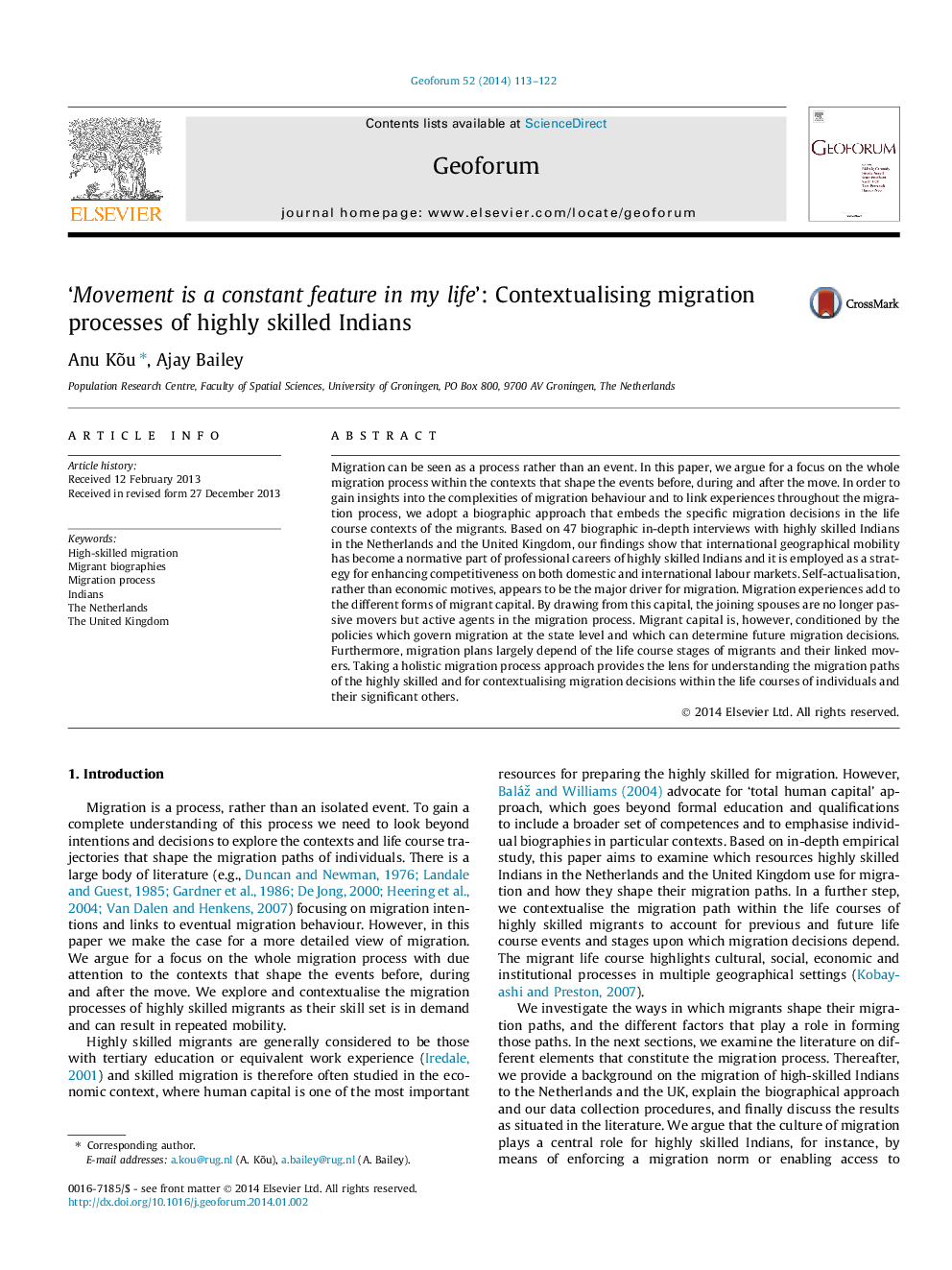| Article ID | Journal | Published Year | Pages | File Type |
|---|---|---|---|---|
| 5074074 | Geoforum | 2014 | 10 Pages |
Abstract
Migration can be seen as a process rather than an event. In this paper, we argue for a focus on the whole migration process within the contexts that shape the events before, during and after the move. In order to gain insights into the complexities of migration behaviour and to link experiences throughout the migration process, we adopt a biographic approach that embeds the specific migration decisions in the life course contexts of the migrants. Based on 47 biographic in-depth interviews with highly skilled Indians in the Netherlands and the United Kingdom, our findings show that international geographical mobility has become a normative part of professional careers of highly skilled Indians and it is employed as a strategy for enhancing competitiveness on both domestic and international labour markets. Self-actualisation, rather than economic motives, appears to be the major driver for migration. Migration experiences add to the different forms of migrant capital. By drawing from this capital, the joining spouses are no longer passive movers but active agents in the migration process. Migrant capital is, however, conditioned by the policies which govern migration at the state level and which can determine future migration decisions. Furthermore, migration plans largely depend of the life course stages of migrants and their linked movers. Taking a holistic migration process approach provides the lens for understanding the migration paths of the highly skilled and for contextualising migration decisions within the life courses of individuals and their significant others.
Related Topics
Social Sciences and Humanities
Economics, Econometrics and Finance
Economics and Econometrics
Authors
Anu Kõu, Ajay Bailey,
